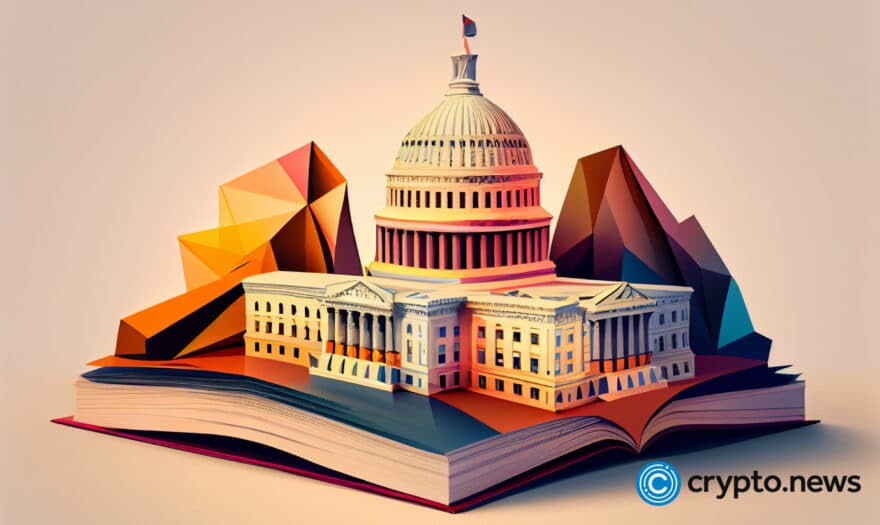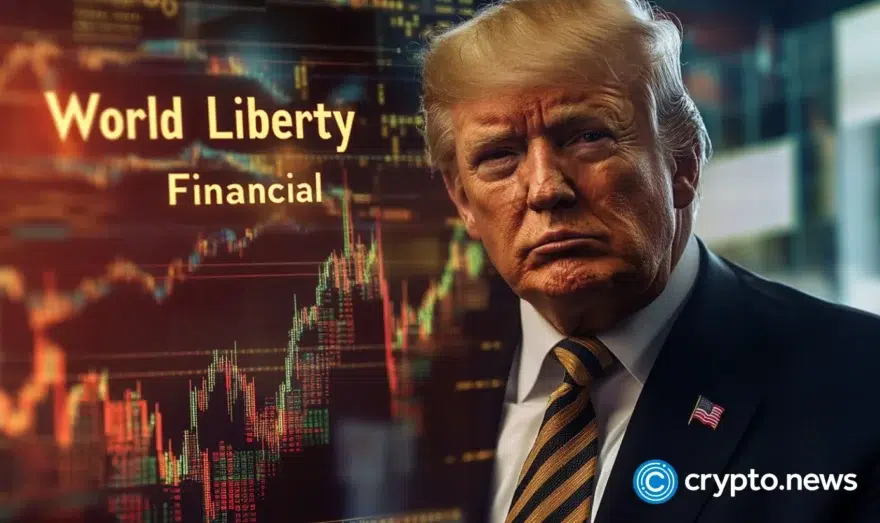Tucker Carlson slams crypto privacy, pushes CIA origin claim

In a speech during a Turning Point USA event commemorating Charlie Kirk, political commentator Tucker Carlson claimed he believes the Central Intelligence Agency created Bitcoin. Thus, he reinforced an unpopular theory that has long been circulating in the crypto space. On top of that, Carlson claimed digital currencies are “totalitarian control.” Understandably, the crypto space booed these remarks.
- During his speech, Tucker Carlson expressed his concerns, claiming that digital assets lack privacy.
- He thinks the younger generation likes Bitcoin just because they were excluded from other financial opportunities.
- Carlson said he doesn’t understand Bitcoin and thinks that the lack of information about the Bitcoin inventor, Satoshi Nakamoto, means that the actual creator is the CIA.
- The theory Carlson refers to is not new. However, it has too little evidence. Many people agree that, given that Bitcoin has an open-source code, the figure of the Bitcoin creator is not important.
Carlson’s remarks on the lack of privacy in cryptocurrencies
Addressing an audience question whether Carlson is investing in Bitcoin, he said that he loves the idea of financial autonomy. He claimed that while he never cheated on his taxes, he is a “tented” person. “Once the money is mine, I can do what I want with it,” said Carlson.
Carlson is definitely not an enemy of the crypto world, per se. For instance, he advocated for the stop of Roger Ver’s prosecution. His statement is featured on the Free Roger Ver campaign’s website. Here’s what he said:
“This lawfare isn’t really about taxes. It’s about control. Ver has long challenged both permanent Washington and centralized finance, and they hate him for it. They see him as a threat.”
However, a famous political commentator is not a complete fan of crypto either. During the Turning Point event, he said that he is afraid of digital money as it doesn’t present enough privacy. He referred to it as “totalitarian control.”
According to Carlson, the youth like Bitcoin and other cryptocurrencies because “they have been completely screwed in the job market and there are no financial opportunities for most of them.” The youth sees crypto as the way out.
However, Carlson is afraid that crypto will become “a scam of all sorts run by the coalition of the financial beneficiaries.” In his opinion, politicians will use crypto to control American society, and he is worried about that.
Is Carlson wrong about ‘totalitarian control?’
Carlson’s remarks resonate with criticism aimed at central bank-issued digital currencies (CBDCs), digital versions of national currencies controlled by the state. One of the countries pioneering CBDCs is China, an authoritarian regime that has a lot of control over people’s lives. Europe and Russia are working on the digital euro and the digital ruble. Officially, the U.S. is not moving in this direction.
The Trump administration distanced itself from working on CBDCs, citing privacy concerns. On Jan. 23, 2025, Trump signed an act called “Strengthening American leadership in digital financial technology.” This act explicitly prohibits “the establishment, issuance, circulation, and use of a CBDC within the jurisdiction of the United States.” Instead of a central bank-controlled digital dollar, the U.S. chose the path of privately issued USD stablecoins.
However, despite demonstrative support for citizens’ privacy, the U.S. Treasury has already begun to work on ways to collect data based on stablecoin transactions. In August, it requested public commentary on how to detect illicit activity involving digital assets.
Some saw it as a positive move directed at updating the security approach to the reality of the crypto era. Recently, a Coinbase CLO, Paul Grewal, released an open letter to the U.S. Treasury with Coinbase’s recommendations on how to improve existing security practices. However, others saw the Treasury’s request as an alarming sign of turning stablecoins into a surveillance tool.
While there is no direct evidence that crypto may turn into a surveillance tool in the U.S., Carlson’s concerns at least have some ground.
Did the CIA invent Bitcoin?
Continuing to speak about the reasons why he doesn’t invest in crypto, Carlson said he doesn’t invest in something he doesn’t understand. One of his concerns about Bitcoin is that no one can explain to him who Satoshi Nakamoto was.
Carlson said that, as a person who grew up in D.C. in a government family, his main guess is that Bitcoin was created by the CIA:
“That’s my guess, I can’t prove it, but like you’re telling me to invest in something whose founder is mysterious and has billions of dollars of unused Bitcoin, like what is that? And no one can answer the question, including some of the biggest holders of Bitcoin in the world I do know personally. They’re like “oh, it doesn’t matter.” But it matters to me!”
Carlson’s version of the Bitcoin origins is not new and is by far not popular. Some call the theory of the CIA origins of Bitcoin one of the oldest conspiracy theories about cryptocurrency.
The theory points to the fact that even Japanese words “Satoshi” (“wise,” “intelligent”) and “Nakamoto” (“central origin”) are hints at the Central Intelligence Agency. Some see Bitcoin as a surveillance tool. It provides full transparency of transactions in the immutable database while replacing counterparty names with strings of symbols.
The response of the crypto community to Carlson’s speech was predictable. Many of those who commented on the news dismissed Tucker Carlson’s concerns. Several commenters believe that, given that Bitcoin is open-source, it doesn’t matter who created it, as obviously, the CIA has no control over the network. Some pointed out that Bitcoin is used by various states, including those opposed to the U.S., which makes the CIA’s Bitcoin theory illogical. Others just ridiculed Carlson’s guess.
In 2011, the CIA allegedly paid $3,000 to one of the earliest Bitcoin developers, Gavin Andersen, to lecture the agency about Bitcoin. Some see it as evidence against the CIA’s Bitcoin theory.
While there is no direct evidence that Bitcoin was invented by the CIA or any other entity, the CIA theory does not have many followers.

















